The abuse of China's 'left-behind' children
- Published
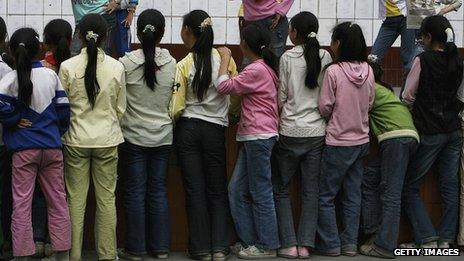
Millions of migrant workers have to leave their children in their home villages
A series of disturbing revelations in China's state media about the sexual abuse of school children has exposed the dark side of life in rural areas where parents leave their homes to earn money as migrant workers.
On 8 August, a 62- year-old man was detained by police in the city of Ruichang, Jiangxi province, for sexually abusing seven girls. The details of the case are horrifying.
The man was working as a school teacher in a remote mountainous region and between September 2012 and May 2013, he molested seven pupils aged eight or nine in a room at the back of the class, saying that he was just checking homework.
The girls were left with sexually transmitted diseases. Their parents were all migrant workers, Chinese media reports say.
The man has admitted the crimes and police are still investigating the case. It emerged just days after another primary school teacher was arrested in Shanxi Province, in central China, on suspicion of molesting several pupils.
Analysts monitoring such cases of abuse say these reports are probably just the tip of an iceberg.
In May this year, no fewer than eight cases of sex abuse in schools were exposed within a span of 20 days, causing alarm among parents, disgust and anger on social media and in many editorials on official media.
Teacher abusers
"Behind every reported sex abuse case, there might be six hidden cases unreported," says Wang Dawei, a well-known criminologist in the People's Public Security University of China. He believes that many children might not realize that a sex crime has been committed against them and therefore might not even tell their parents.
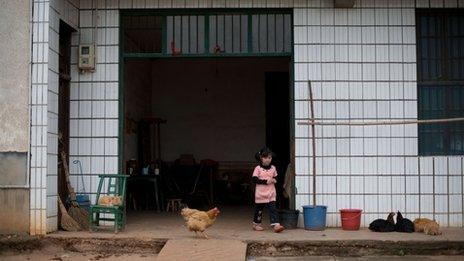
The children of many migrant workers are cared for by their grandparents
One such case emerged in May when a teacher was detained in the city of Shenzhen, Guangdong Province, for molesting four girls. But this case only surfaced when one of the victims told her father in passing that she had massaged her teacher's back at school.
Analysts have identified some key trends. According to Han Jingjing, director of a Beijing-based legal centre for young people, 60% of the sex abuse cases happen in rural areas and 70% happen at schools; the victims tend to come from single families, families that went through divorces and re-marriages, or where mothers are in prison.
National figures on such crimes are difficult to come by, but according to Ms Wang Xingjuan, founder of The Maple Women's Psychological Counselling Centre in Beijing, Guangdong province alone dealt with more than 1,700 sex abuse cases involving children from 2008 to 2011.
But what has angered many is the involvement of the most responsible carers outside of the home, school teachers, in these cases
In June a primary school principal in Hainan Province was sentenced to 13.5 years in prison for raping six female pupils in a local hotel. Among the cases reported in May was that of a 56-year-old man in Henan province detained for molesting several pupils in his charge and threatening them and in Hunan, another teacher was detained for abusing several girls.
These cases have shocked the nation and Chinese social media is simmering with anger, frustration and questions.
"Are they animals"? "Don't they have daughters?" That's the view of one netizen on Tencent Weibo - the Chinese micro-blogging website.
Mother 0315 posts on Sina Weibo: "I always thought of teaching as a noble vocation, but now I feel a teacher is worse than animals. As a mother, I can feel the pain of the victims and their families."
Zuoxingzhan laments the general moral decline of the nation: "Nowadays, teachers are sex abusers, doctors sell babies, judges fool around with prostitutes…… since when did moral standards slip from these once-respected occupations?"
'Left behind children'
But there is also another facet to these cases that is less commented on.
School children in rural areas are particularly vulnerable if their parents happen to be migrant workers who spend a long time working away from home. They often don't get to visit regularly and the children are left to be looked after by relatives, such as grandparents.
A recent report by the All China Women's Federation, the official union for Chinese women, suggests that 37% of children in the rural area belong to this category of so-called "left behind children", and sexual abuse is a major threat.
At a July conference held in Beijing in response to the spate of sexual abuse cases reported in the official media, experts point out that the increase in cases can also be blamed on the poor quality of sex education and inadequate guidelines for children on how to respond to such situations.
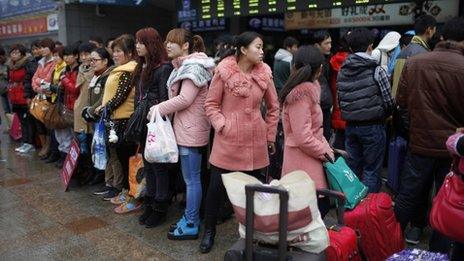
Absent mothers means that children often don't get the sex education they need to help protect themselves against potential abusers
"Some children are molested when they are about seven or eight, but they don't realise that they have been abused", observes Wang Xingjuan, founder of the Maple Women's Psychological Counselling Centre. "They are not comfortable with the situation; they are afraid and they know there is something wrong, but they put up with it".
"Children should be educated enough to know that in such situations, they can say no, they can cry, they can shout, and they can leave - all these are self-protection methods", says lawyer Liu Liwen.
A recent survey carried out by the Maple centre reveals that many schools don't educate pupils about sexual offences, and even sex education classes made mandatory by the Ministry of Education are not carried out properly, with many schools simply going through the motions and some even asking the students to read the textbooks themselves at home.
But things are no better at home, as traditionally, adults don't talk about sex with their children. The "absent mothers" situation makes this even worse.
How the legal system should protect vulnerable children and punish the culprits is another area for debate. According to the criminal code, people who have committed multiple acts of sexual abuse of underage children should get 10 years or longer in prison.
Recently a school principal accused of sexually abusing four girls had his sentenced increased by six months to three years. The victim's family still thinks it is too lenient and are looking for a sentence of at least five years in prison.
There will be a further hearing later this year. After this latest spate of cases, people will be watching.
- Published2 October 2012

- Published15 December 2011
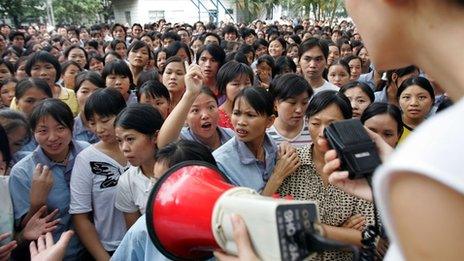
- Published1 September 2011
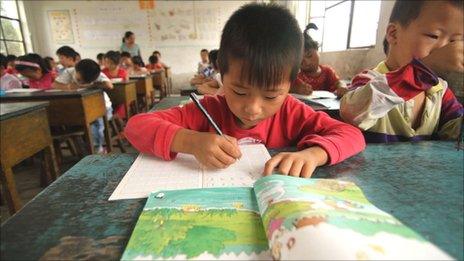
- Published11 November 2012
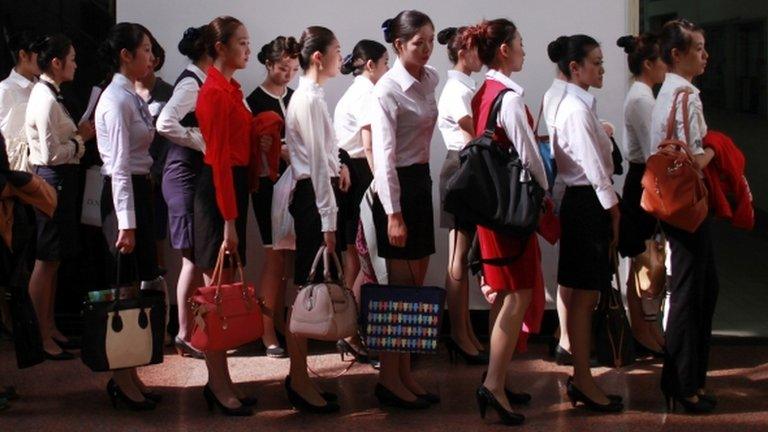
- Published22 September 2015